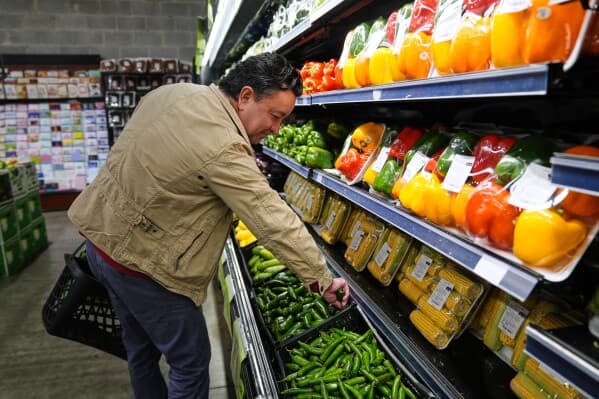
Judge Questions Legality of Trump Administration’s Plan to Suspend Food Aid
Boston court weighs emergency plea as 42 million Americans risk losing SNAP benefits amid prolonged government shutdown.
A federal judge in Boston said it appeared that President Donald Trump’s administration could not lawfully suspend all food aid for millions of Americans amid the ongoing government shutdown, as it planned to do from Saturday.
US District Judge Indira Talwani said she would decide later on Thursday whether to compel the US Department of Agriculture (USDA) to use part of the $5.25 billion in contingency funds it currently holds to finance the Supplemental Nutrition Assistance Programme (SNAP), commonly known as food stamps.
During an hour-long hearing, lawyers representing 25 Democratic-led states and the District of Columbia urged the judge to issue a temporary restraining order ensuring the government at least partially funds SNAP benefits, on which 42 million Americans depend.
The USDA has stated that it lacks sufficient funds to pay full benefits, which cost between $8.5 billion and $9 billion per month. Justice Department lawyer Jason Altabet told the court that the USDA lacked the authority to release any funds for benefits until Congress passes a spending bill to end the shutdown, which began on October 1.
However, Judge Talwani -- appointed by former Democratic President Barack Obama -- questioned how the administration concluded it could pay out nothing at all when Congress had already allocated contingency funds for use in emergencies.
“It’s hard for me to understand how this isn’t an emergency when there’s no money and a lot of people are needing their SNAP benefits,” she remarked.
She added that Congress and the USDA’s own regulations seemed to expect the agency to “tighten belts” rather than cut off all aid, even if it could not fully fund benefits for nearly 42 million low-income Americans -- a first in the SNAP programme’s history.
“We’re not going to make everyone drop dead because it’s a political game,” she said.
The USDA’s shutdown plan, published last month, stated that contingency funds were available to sustain SNAP benefits if Congress failed to approve spending legislation. Yet on Saturday, the department updated its website to announce that no benefits would be issued on 1 November, saying “the well has run dry.” The change prompted the states to file a lawsuit on Tuesday.
SNAP benefits are available to Americans earning less than 130 per cent of the federal poverty line -- roughly $1,632 per month for a single-person household or $2,215 for two people in many regions. States handle the daily administration of the programme, with benefits distributed monthly.
As the funding impasse continues, Democrats and Republicans in Congress have blamed each other for the shutdown and the risk that SNAP payments could lapse.
The coalition of states -- led by Massachusetts, California, Arizona and Minnesota — argued that the lapse is unnecessary given the existence of contingency funds, which could cover part of the benefits and are, by law, intended for use “as necessary to carry out programme operations.”
“Millions of Americans are going to lose benefits they’ve had for decades,” said Michelle Pascucci, a lawyer from the Massachusetts attorney general’s office. She contended that the USDA has no discretion to halt benefits unless funding is entirely depleted and must continue payments as long as any appropriated funds remain available, even if only partially.
Altabet warned that ruling in favour of the states could create serious logistical challenges, saying USDA officials were “legitimately scared” that outdated systems in some states might be unable to handle a partial benefits distribution.
“The agency thinks it would be catastrophic,” he said.
Although the temporary restraining order sought by the states would apply only to them, Judge Talwani noted that under the law governing SNAP, any ruling she issued would have nationwide consequences, as benefits cannot vary by geography or “what political party they are.”
“I can’t consider this in only the terms of half the nation,” she said.
For any enquiries please fill out this form, or contact info@thelawreporters.com and Follow The Law Reporters on WhatsApp Channels